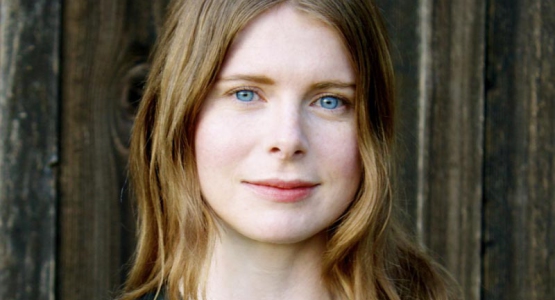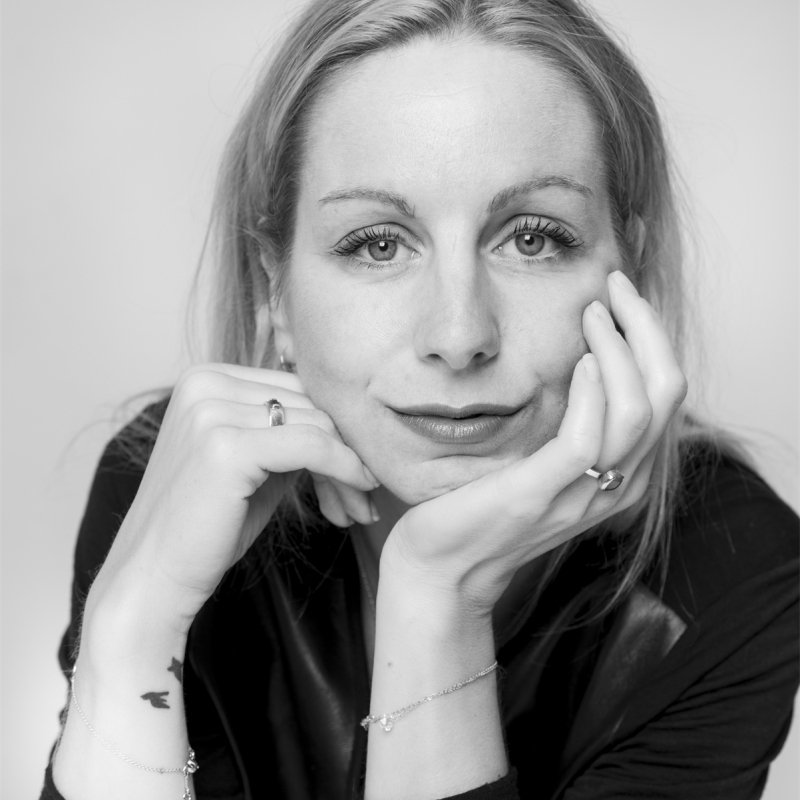De meisjes van Emma Cline
Haar roman werd vol lof ontvangen en veelal neergezet als een boek over Charles Manson en zijn meisjesschare die in de jaren zestig gruwelijke moorden pleegden. Maar ik las het vooral als een boek over meisjes: hoe ze opgroeien, hoe onzeker ze kunnen zijn en hoe weinig houvast ze hebben in een wereld die wordt geregeerd door schoonheidsidealen en lust. Een fragment van mijn interview staat in de nieuwe Vogue, vanaf dinsdag in de winkel. Hier lees je de rest van ons gesprek, over meisjes, uiterlijk, rolmodellen en de mannelijke blik.
A lot of people read ‘The Girls’ as a book about the Manson Affair. What’s it about in your view?
‘For me, the book is mostly about coming of age, and the experience of being an adolescent girl. A lot about longing and desire.’
Is it different for girls than for boys to come of age?
‘In my experience. Just the different narratives we give to boys and girls. I think girls are taught to look so much to the outside for information about themselves. Whereas boys get to just experience themselves and to be in their body. With girls, there are so many layers to it, to the way they see themselves and see eachother.’
Is that because society is looking at their appearance so much?
‘I think that’s a layer of it. Certainly. And that’s partly what I wanted to explore in the book, this sense of becoming an adolescent girl when you start to realize that the world will see you in this specific way. How do you internalize that objectification and how do you start to objectify yourself in other girls around you? To me, Evie really almost sees herself and the women and girls around her with the gaze of a man, she’s very assessing and judgmental and putting everyone in a hierarchy.’
You gave her mother an absent role. Is that a conscience choice, by which you want to say: if a girl grows up without someone guiding, then she becomes fragile and vulnerable in the way that she internalizes that objectification?
‘Yeah, for me, it was important to have a character who felt alone in the world. To me, her mother is a sympathetic character at the same time – I didn’t want her to be a bad mother. I think in many ways she is understandable and she does what she can. But teenagers see the world in black and white, so for Evie her mother is absent. As a novelist, you want to have characters whose circumstances force them in whatever choices they make. For me, having her parents divorcing and having this kind of fractured family life, was important to why Evie might desire to be part of another group that felt whole.’



Speaking of that group, why did you choose the Manson family to elaborate on this coming of age theme?
‘To me, it was sort of a little game I played with myself: how do you write a book that’s actually about growing up and being a teenager girl, but also have this other, sort of infamous section and make that the least important section. Some people responded to it like it’s the main theme, but to me it seems obvious that it’s not. But what interests me about it, as a background maybe, is that the participants were these young women, and I thought a lot about what might inspire their idolatry of Charles Manson. And I also liked Evie not to be interested in the male cult leader, her interest and desire was more located in another woman. For me, that felt more true to how relationships operate at that age.’
Why Susan?
‘I liked having a character that had a lot of contradictions. So much of their friendship was one-sided. I think Evie really projects a lot of her own desires and imaginings onto this girl, who I think uses her in a lot of ways. To me, the dynamics of a younger girl idealizing an older girl, feeling like an older girl has more access to the world or a persona – that to me felt real and a dynamic I wanted to explore in fiction. I think friendship is an interesting realm to write about. I think we have so many books about family and romantic relationships, but female friendships are such interesting rich material for fiction. Cause there is competetitveness, and there’s also real love. It’s a murky area that I find interesting.’
Especially when the friendship is between a young girl and a slightly older girl. Then you have the part of jealousy, but also the part of learning, and maybe growing up as a girl in this time where you need to be someone, you need kind of an example – how do you do that? Did you have an example when you grew up?
‘I definitely had friendships – not exactly like this one, but friendships that felt very intense to me and that had that element of: I want to learn from you. I want to see how you… I think what’s most interesting and you kind of said it and it made me think, is that women need examples of how to be a woman, because it feels like something you have to actively perform. You have to actively perform being a woman. And that’s why you always look for information, that’s where the magazines come in. It’s as if there’s a correct way, so you’re always looking for guidance. And I think for men and boys it’s something else. Their relationships don’t have that element of how do you perform correctly as a man. Or maybe they do, but I understand more the female aspect of it.’
When I’m looking at you, I see a beautiful woman without any makeup – is that a conscious choice?
‘It’s funny, because being one of five girls, you would think that I know a lot about makeup or hair. But we just never really learned that stuff. I think it’s fun to play around with sometimes.’
Do you feel the pressure that Evie felt to be beautiful, and to read about how to become that? Is that a theme in your life?
‘I think that’s a strange part. I try to minimize it as much as possible. Because I find it to be distracting. And I think that has been strange about writing a book so much about objectification and the way we view women, and then to have my photo taken for all these articles – it feels strange. It feels very contradictory, and I don’t know how to navigate it.’
Is it kind of a new sensation that’s opening another part of you?
‘No, to me, it feels like noise, it feels distracting to writing. And it kind of makes me understand Elena Ferrante better: oh, that’s why she doesn’t give interviews. It’s too late for me, but if I could do it again, I would stay anonymous.’
De meisjes van Emma Cline verscheen in juni 2016 bij Lebowski Publishers. Dit interview werd eerder gepubliceerd op het blog van Maartje Laterveer.

